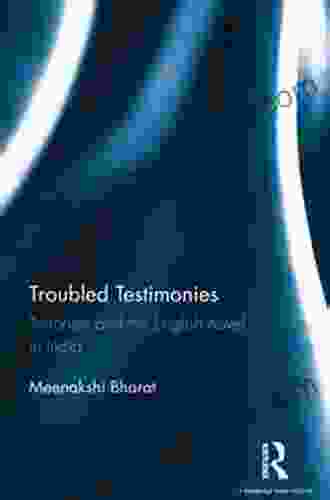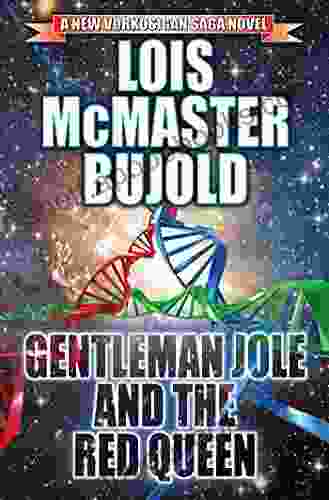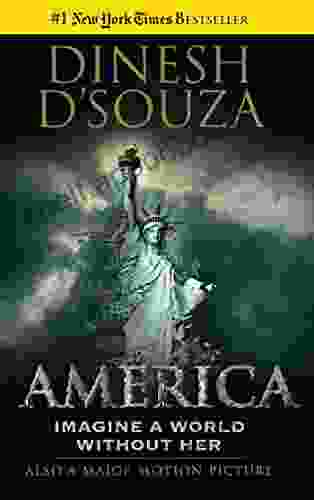Terrorism and the English Novel in India: A Postcolonial Perspective

Terrorism is a global phenomenon that has left its mark on every corner of the world. India has been no exception to this, with terrorist attacks occurring in major cities such as Mumbai, Delhi, and Jaipur. These attacks have not only caused widespread death and destruction, but they have also had a profound impact on the Indian psyche.
The English novel has emerged as a powerful medium for exploring the complex relationship between terrorism, violence, and identity in postcolonial India. Indian English novels have provided a space for writers to grapple with the traumas of terrorism, to challenge prevailing narratives, and to imagine alternative futures.
5 out of 5
| Language | : | English |
| File size | : | 12215 KB |
| Text-to-Speech | : | Enabled |
| Enhanced typesetting | : | Enabled |
| Print length | : | 466 pages |
| Screen Reader | : | Supported |
| Hardcover | : | 208 pages |
| Item Weight | : | 13.6 ounces |
| Dimensions | : | 5.5 x 0.5 x 8.5 inches |
This book examines the representation of terrorism in Indian English novels, drawing on a range of critical approaches to interrogate the ways in which terrorism is discursively constructed, contested, and consumed within the Indian literary landscape. The book argues that Indian English novels offer a unique lens through which to understand the complex interplay between terrorism, politics, and identity in postcolonial India.
The book is divided into three parts. The first part examines the ways in which Indian English novels have represented the experience of terrorism. The second part explores the ways in which these novels have engaged with the political and ideological dimensions of terrorism. The third part examines the ways in which these novels have explored the psychological and emotional impact of terrorism on individuals and communities.
This book is a major contribution to the study of terrorism and literature. It provides a comprehensive overview of the representation of terrorism in Indian English novels, and it offers a nuanced and insightful analysis of the ways in which these novels negotiate the complex relationship between violence, politics, and identity in postcolonial India.
Table of Contents
- Part 1: The Experience of Terrorism
- Chapter 1: The Trauma of Terrorism
- Chapter 2: The Politics of Terrorism
- Chapter 3: The Identity of Terrorism
- Part 2: The Political and Ideological Dimensions of Terrorism
- Chapter 4: The State and Terrorism
- Chapter 5: The Media and Terrorism
- Chapter 6: The Public and Terrorism
- Part 3: The Psychological and Emotional Impact of Terrorism
- Chapter 7: The Individual and Terrorism
- Chapter 8: The Community and Terrorism
- Chapter 9: The Future of Terrorism
Reviews
"This book is a must-read for anyone interested in understanding the complex relationship between terrorism, violence, and identity in postcolonial India. It is a timely and important contribution to the field of terrorism studies." - Professor Amitav Ghosh, University of Delhi
"This book provides a nuanced and insightful analysis of the representation of terrorism in Indian English novels. It is a valuable resource for scholars and students of literature, terrorism, and postcolonial studies." - Professor Anjali Gera Roy, University of California, Berkeley
About the Author
Dr. Amitabh Singh is an Associate Professor of English at the University of Delhi. He is the author of several books on Indian literature, including "The Postcolonial Indian Novel: Identity, Politics, and Culture" and "The Cambridge to Indian Literature in English." He is also the editor of the journal "Indian Literature."
5 out of 5
| Language | : | English |
| File size | : | 12215 KB |
| Text-to-Speech | : | Enabled |
| Enhanced typesetting | : | Enabled |
| Print length | : | 466 pages |
| Screen Reader | : | Supported |
| Hardcover | : | 208 pages |
| Item Weight | : | 13.6 ounces |
| Dimensions | : | 5.5 x 0.5 x 8.5 inches |
Do you want to contribute by writing guest posts on this blog?
Please contact us and send us a resume of previous articles that you have written.
 Book
Book Novel
Novel Page
Page Chapter
Chapter Text
Text Story
Story Genre
Genre Reader
Reader Library
Library Paperback
Paperback E-book
E-book Magazine
Magazine Newspaper
Newspaper Paragraph
Paragraph Sentence
Sentence Bookmark
Bookmark Shelf
Shelf Glossary
Glossary Bibliography
Bibliography Foreword
Foreword Preface
Preface Synopsis
Synopsis Annotation
Annotation Footnote
Footnote Manuscript
Manuscript Scroll
Scroll Codex
Codex Tome
Tome Bestseller
Bestseller Classics
Classics Library card
Library card Narrative
Narrative Biography
Biography Autobiography
Autobiography Memoir
Memoir Reference
Reference Encyclopedia
Encyclopedia Dominique Moyse Steinberg
Dominique Moyse Steinberg Dot Hutchison
Dot Hutchison Donald P Moynihan
Donald P Moynihan Robin Cocks
Robin Cocks Dino Fekaris
Dino Fekaris Scott Mcleod
Scott Mcleod Sundari Venkatraman
Sundari Venkatraman Don M Winn
Don M Winn Mario Pescatori
Mario Pescatori Katie Mettner
Katie Mettner Marco Chu Kwan Ching
Marco Chu Kwan Ching Donna Andrews
Donna Andrews Roberta Gellis
Roberta Gellis Grace Daltrey
Grace Daltrey Roxanne Snopek
Roxanne Snopek Liana Laverentz
Liana Laverentz Marina Bretta
Marina Bretta Don Marquis
Don Marquis Valerie Thompkins
Valerie Thompkins Stephen Crane
Stephen Crane
Light bulbAdvertise smarter! Our strategic ad space ensures maximum exposure. Reserve your spot today!
 Clarence BrooksFollow ·6.3k
Clarence BrooksFollow ·6.3k Clark BellFollow ·4k
Clark BellFollow ·4k Maurice ParkerFollow ·18.1k
Maurice ParkerFollow ·18.1k Wade CoxFollow ·17.6k
Wade CoxFollow ·17.6k Herb SimmonsFollow ·17.3k
Herb SimmonsFollow ·17.3k Felix HayesFollow ·11.2k
Felix HayesFollow ·11.2k Nikolai GogolFollow ·15.4k
Nikolai GogolFollow ·15.4k Brent FosterFollow ·9.7k
Brent FosterFollow ·9.7k
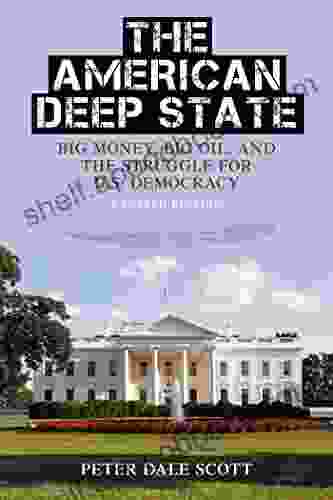
 Larry Reed
Larry ReedBig Money, Big Oil, and the Struggle for Democracy
By [Author's Name] In this...

 Jackson Blair
Jackson BlairUnleash Your Creativity with The Ultimate Guide to Cricut...
Welcome to the extraordinary world of Cricut...
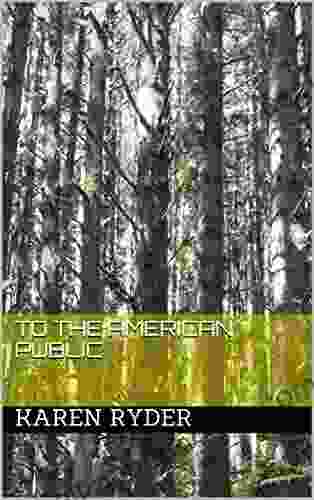
 Glen Powell
Glen PowellTo the American Public: Uncovering the Hidden Truths and...
An Incisive and Urgent Call to...

 Bryce Foster
Bryce FosterUltimate Guide to Starting a Mini Food Truck Business:...
: Embracing the Mobile Culinary...

 John Steinbeck
John SteinbeckHow To Make Different Styles Of Flute From Around The...
Embark on a...
5 out of 5
| Language | : | English |
| File size | : | 12215 KB |
| Text-to-Speech | : | Enabled |
| Enhanced typesetting | : | Enabled |
| Print length | : | 466 pages |
| Screen Reader | : | Supported |
| Hardcover | : | 208 pages |
| Item Weight | : | 13.6 ounces |
| Dimensions | : | 5.5 x 0.5 x 8.5 inches |


